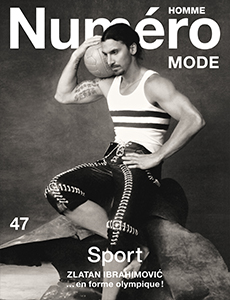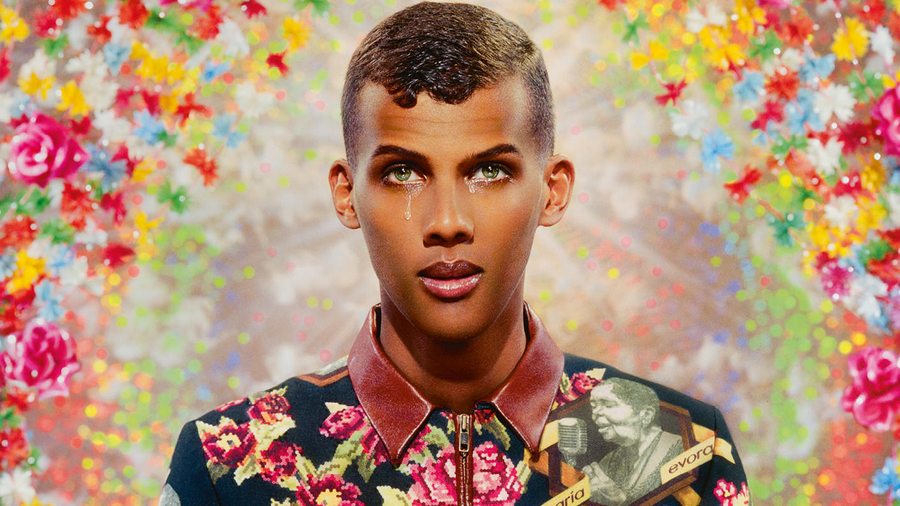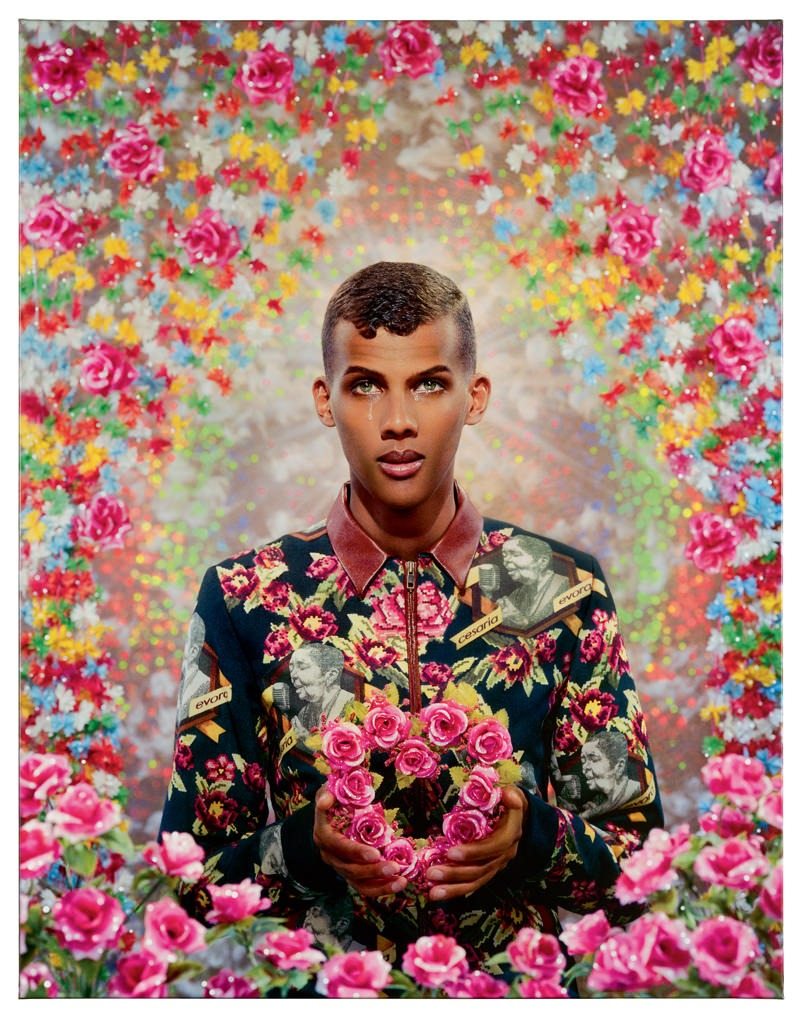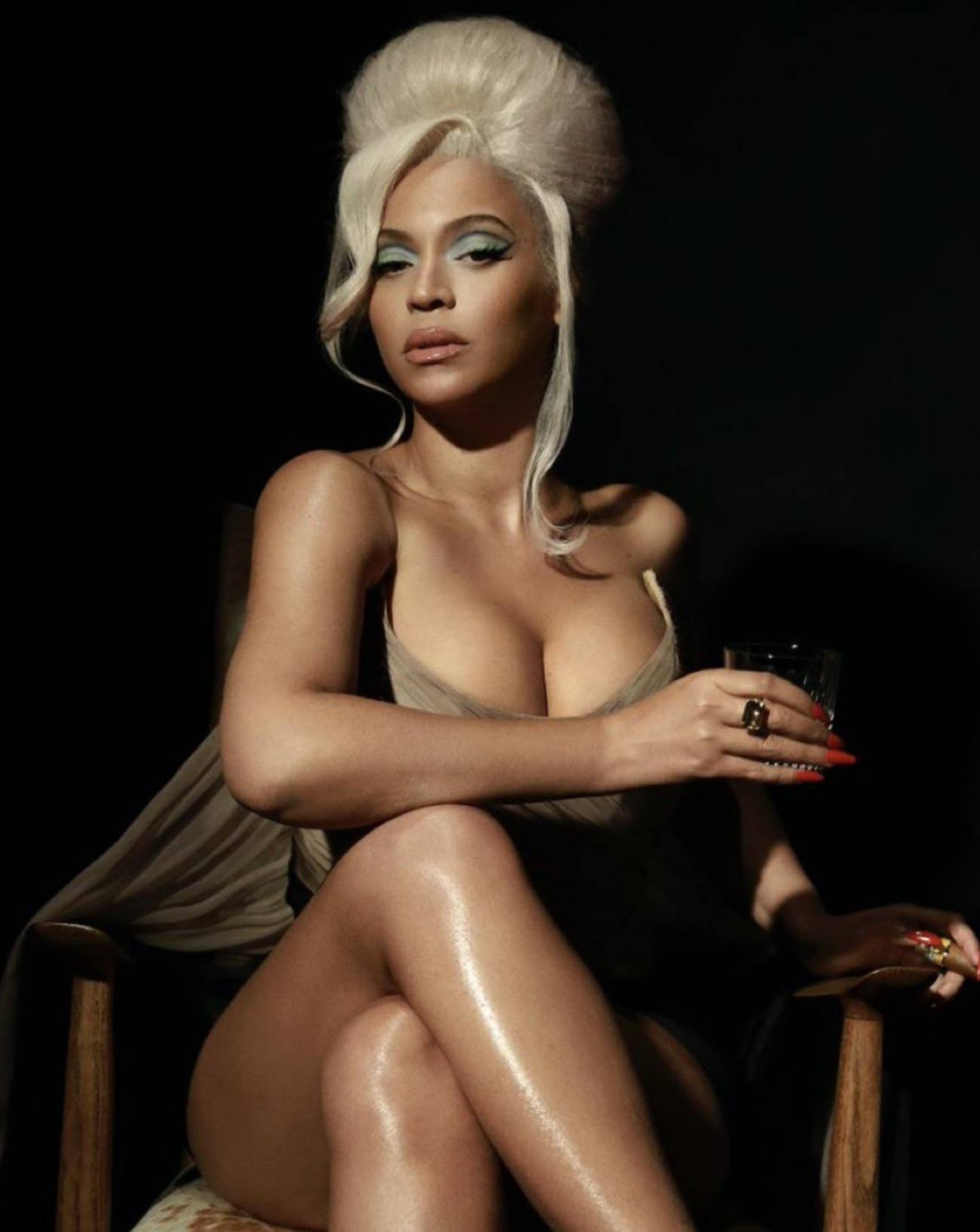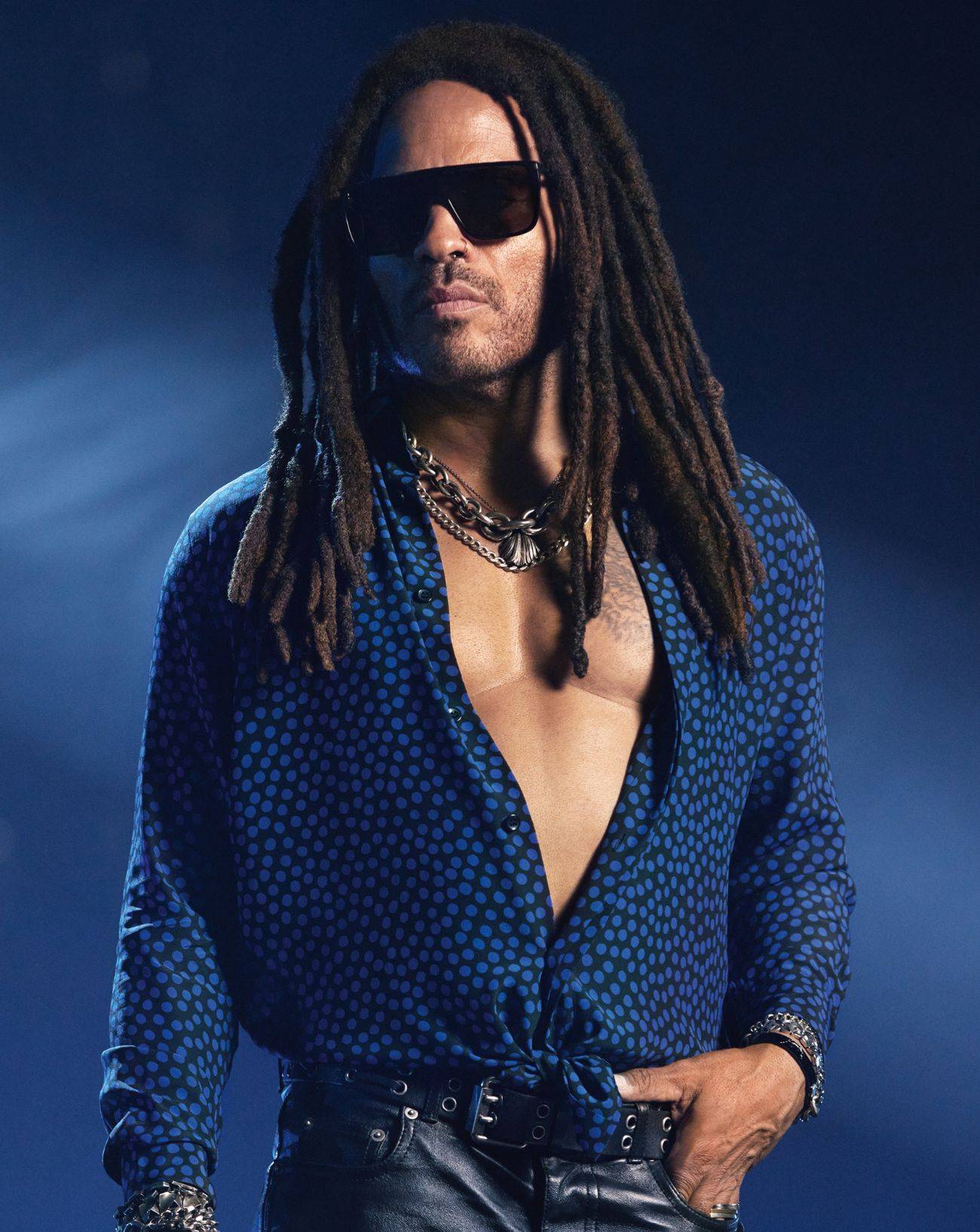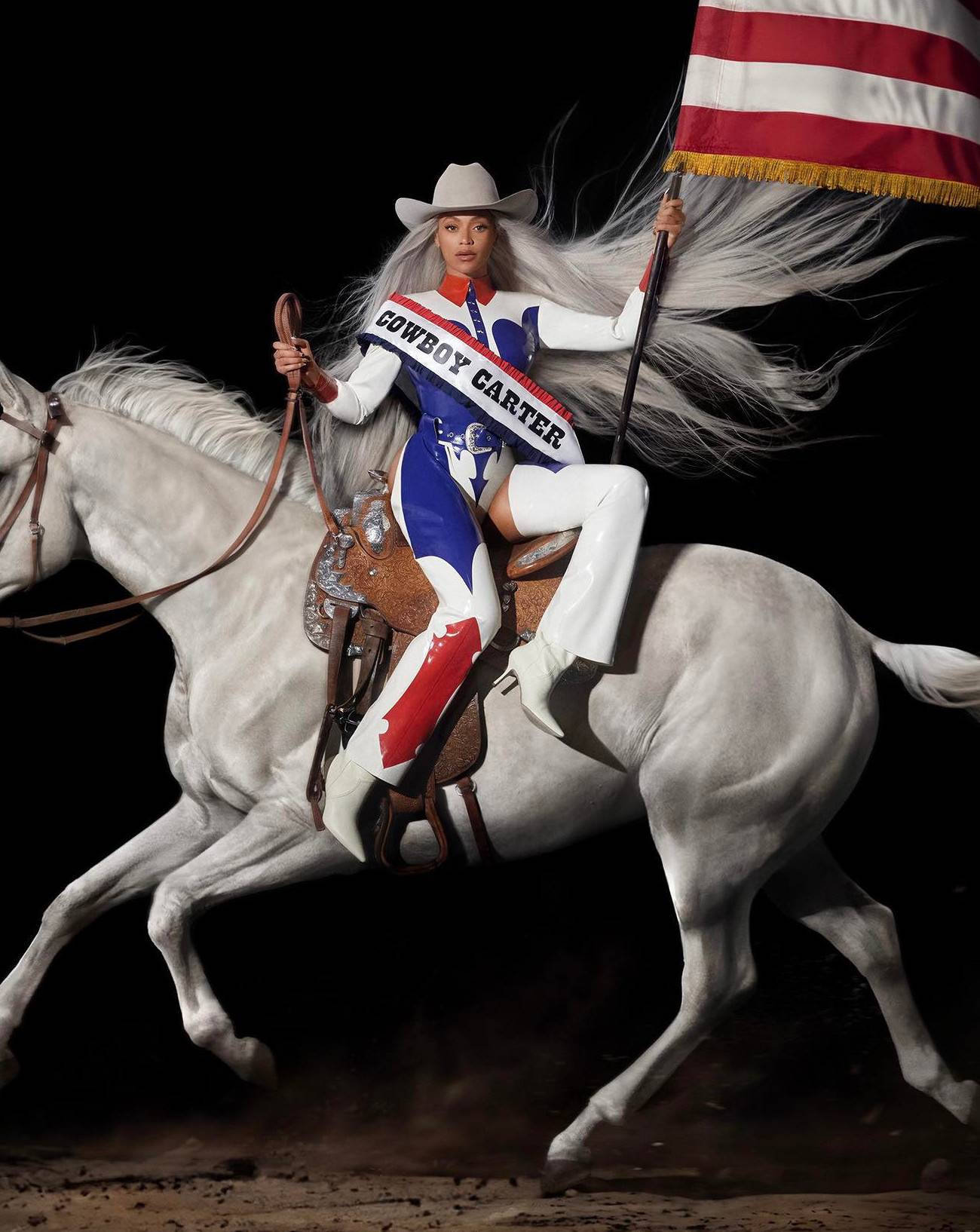Stromae by Pierre et Gilles for Numéro homme
The biggest French-speaking pop star of recent times, Paul Van Haver, better known by his stage name Stromae, mixes world music, Weltschmerz and joie de vivre. But is this seemingly earnest young man as smooth as he at first appears? Numéro Homme found out.
Rather like with your tracks where you set difficult themes – cancer, abandonment, alcoholism – against very chirpy music. Are you inviting us to a danse macabre, like in those medieval paintings where all the figures are feasting with death even though everything’s lost?
Yes, even if it means dying… But it’s not like I’m singing odes to death either! We’re all going to die, obviously, so in the meantime let’s keep smiling and not go about moping. I know I’m not in a position to preach – when you live through your work, and live well, it’s always easier. I’m just suggesting we don’t constantly talk about it. But in spite of the recession, people are still partying, still celebrating their birthdays… That’s human nature.
You set yourself up as the bard of positive thinking yet you’re often criticized for dwelling on the world’s miseries.
I hope I’m not making anyone depressed! And if it reassures you, I believe there’s an opinion poll out there that says I’m considered to be among the most optimistic public figures. But you’re right, the satirical puppets on Canal + portray me that way, always singing and having fun despite the serious subjects I deal with. And they’re not wrong – I can understand that my joy or optimism in the face of such issues might appear indecent. But I also can’t help thinking there’s some good in everything. That’s how I am.
You’re incorrigible!
What I’m selling is based on that attitude. It’s also my way of protecting myself. Actually, in the logical order of things, it’s more my way of protecting myself than a sellable product. [Laughs.]
And what do you need to protect yourself from?
I’m know it’s going to sound predictable, but all the fame and attention I get frightens me. I’m sorry to be so trivial, but it’s true. I’m not complaining. There’s absolutely no malice from the public, but it is a handicap. And extraordinary, in the literal sense: beyond the ordinary. I think it could end up being very unhealthy for everyone. So I need to keep a certain distance from it all. Putting everything into perspective is my way of protecting myself.
I’ve noticed that you often talk about Stromae in the third person, as if you and Stromae were two separate entities. Is this another way of protecting yourself?
Before I became successful, I thought about using “Popol” as a stage name – it’s what my mother called me, and still calls me actually. In the end I didn’t, and I think I was right not to. It would have made the project too personal. Because I prefer to think of Stromae as a collective project. In that way I can be in or out of it as and when I chose. Stromae isn’t me. Or rather, it isn’t just me.
And yet you yourself took part in the exacerbation of this poisoned fame when you posted that video of you wandering through the streets completely drunk without explaining that it was actually part of your next video. You must have been hoping to generate a bit of scandal?
True. And I got called the king of buzz. But I never expected the video to be so successful. Maybe in Belgium… But definitely not in France. We liked the idea and so we did it. It’s as simple as that. And it wasn’t its success that made it a good idea, and even less our needing to stirr up a buzz every time. I really want to get past that now, go back to something less expected, more classic. As long as people are expecting a big buzz from me, I’ll do everything to avoid it. I’m not a rebel. I don’t want to make myself puke onstage. I’m not looking to shock, far from it. And when it happens I immediately regret it.
You tend to tell universal stories anchored in the banality of daily life. Where does your inspiration come from?
I’m an obsessive note taker. It drives me crazy how those around me never take notes, and I force them to. But once I’ve started the writing process I get drawn to the memories which naturally come back up to the surface and not necessarily the notes. For Formidable the memory of a tramp who once rudely shouted at me in the street came flashing into my mind. He said, “Ugh, have you seen yourself? Do you think you’re good looking?” And that became a line in the song…
Do the lyrics come before the music?
No, it’s the opposite. The music comes first. Then it’s time to write the lyrics, time for the memories. Memories of a guy who I met totally drunk in the street, a friend I went to Italy with and who drank bad alcohol one night and started crying, another friend who can’t get off drugs… And a character forms, made up of all these experiences. It’s a strange phenomenon which I both participate in and observe from a distance at the same time.
You share with a certain part of the French scene – Fauve# or Orelsan – an attraction for the loser.
We all have very different aesthetics, but we do have that in common, it’s true. Personally I suffer from terrible anxiety in the face of success. I really do think that the moment all the planets become aligned is the worst time to react. When they’re waiting for me, when everything has been achieved, I feel totally disarmed. It’s like asking a comedian to make you laugh and he gets totally lost for words… The loser’s garb that I frequently put on is a way of fighting against that. I’d prefer to lose and look like an idiot because I’m always better when there’s an element of danger and when I’ve still got everything to prove.
What’s your ambition today?
To remain normal…
Oh please, we’re not on prime time! Haven’t you got anything less consensual to say?
I’m quite serious. Maintaining a straightforward relationship with your family and friends is a good ambition. As is maintaining normal contact with people. I’m quite happy to sign autographs, but the public also has to leave me in peace to have dinner with my mum at a restaurant. That’s what I want to tackle after the intense tour we’re committed to until 2015. That return to reality makes me scared after such a long period of work, far from everything.
The melting pot you defend is evident in your way of mixing up all different types of music from around the world. But aren’t you worried about ending up with a big mishmash of cultures that just dilutes them?
I think the primary danger for cultural diversity is English. Or rather the temptation everyone has to sing in English and abandon their own language. Cultures evolve through contact with one another, and that’s a fact. Will they lose their particularities because of that? I don’t think so. I have great faith in the strength of the cultures I’ve come into contact with. Africa is a good example. They aren’t as traditional as they were 40 years ago, but they are still super interesting. In Dakar or Abidjan these cultures, even though they’ve been increasingly mixed up with Western culture, are totally thriving. The danger lies with the supremacy of a culture, not the actual mixing. A number of things will evolve, sure, but, within limits, their essence will remain.
Everything has to change for nothing to change?
My brain seems to be structured in such a way that I think fundamentally things won’t move. It’s like we will always know a certain kind of status quo. And that comes, I’m sure of it, from my education and the very Catholic values instilled in me by my family. When I think about it I realize I’m actually deeply conservative.
I’d have thought you were more of a rebel. Didn’t you start rapping as a reaction to the very bourgeois boarding school where you studied?
I’ve known that need for social revenge, faced with a bourgeois milieu which was totally foreign to me. With time though you realize that no one cares. And you understand that actually your best friend back then was also one of those “nasty” bourgeois people, you just didn’t realize it… [Laughs.]
To end this interview with style, could the politically correct Stromae oblige us with an unnuanced, unsentimental declaration?
Yes. I think I’m a arsehole.
